Description
ABSTRACT
Enforcement of Maritime Claims: The Unintended Consequences of Constitutional Change on Admiralty Jurisdiction in Nigeria
Dr Adewale Olawoyin SAN*
Lawmaking is not a perfect science, hence the need for law reform to properly articulate legislative policy and intention. The Constitution as the ground norm for all laws is also not immune from imperfection or imprecision. Given this phenomenon, constitutional amendments are required but sometimes lead to unanticipated or undesirable outcomes. The origin of courts in Nigeria and the assumption of subject matter jurisdiction stems from the Constitution of the Federal Republic of Nigeria 1999. The dangers of overlap in setting out the contours of the respective areas of exclusive subject matter competence of courts were manifested in jurisdictional challenges over 18 years before being settled by explicit provisions of the 1999 Constitution. This article examines the unintended implications of the amendment to the judicial architecture resulting from the Third Alteration to the Constitution of the Federal Republic of Nigeria, which created the National Industrial Court in 2010. The jurisdiction of the National Industrial Court specifies subject matter competence in areas that appear to derogate from the existing subject matters which the Federal High Court exercises exclusive jurisdictional competence. One of such subject matters is crew’s claims in Admiralty. The unexpected consequences are potentially grave as can be seen in recent conflicting decisions from both courts. The uncertain reach of the effects is a strong indication of potential disruptions to the existing legal order concerning Admiralty law and practice in Nigeria. Thus, a pragmatic solution premised on judicial comity which recognizes concurrency of jurisdictional competence of both courts in employment and labour-related claims of crew members and common law constitutionalism administered by judges is proffered as an alternative to a preferred constitutional amendment.
Keywords: Exclusive subject matter jurisdiction, National Industrial Court, Federal High Court, 1999 Constitution.
INTRODUCTION
The Presidential System of Government is the most common form of political governance in operation around the world. The majority of this form of Government or its variant as applied in different countries mirrors the American system of government and the United States Constitution of 1787, which creates the elected office of “President”. The creation of this office sets the tone for the universal recognition of the doctrine of separation of powers in political governance. The Nigerian State, given its colonial history, has had its fair share of Constitutions.1
* LL.B (Hons) Ife, LL.M (London), PhD (Bristol). Associate Professor, Department of Commercial & Industrial Law, Faculty of Law, University of Lagos, Nigeria.
- See Professor Taiwo Osipitan SAN, ‘An Autochthonous Constitution for Nigeria: Myth or Reality?’ (Inaugural Lecture Series, University of Lagos, 24 November 2004) 4: “Since 1914, apart from the stillbirthed 1989 and 1995 Constitutions, Nigeria has operated eight different Constitutions. These are the 1 Imperial (4), Independence (1), Republican (1) and Presidential (2) Constitutions.”

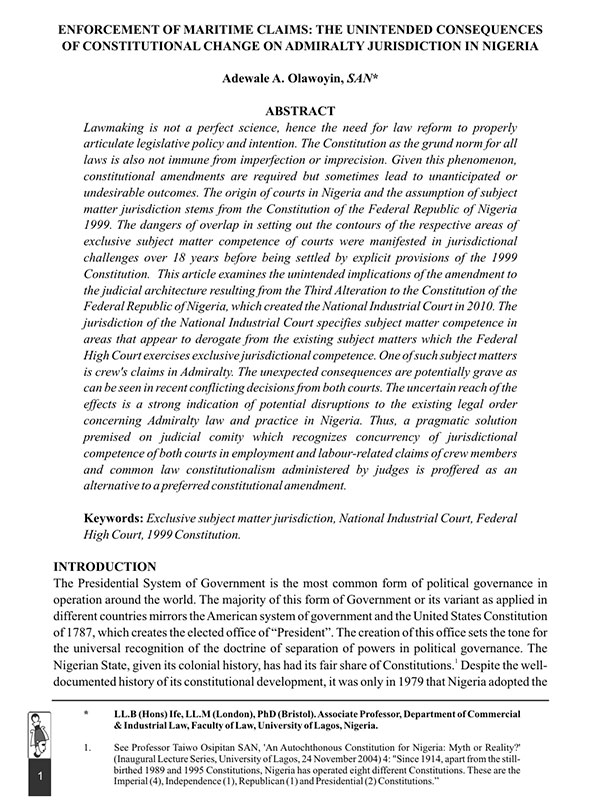
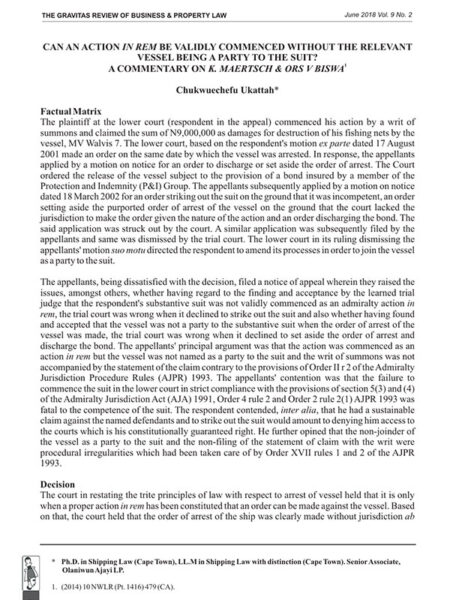
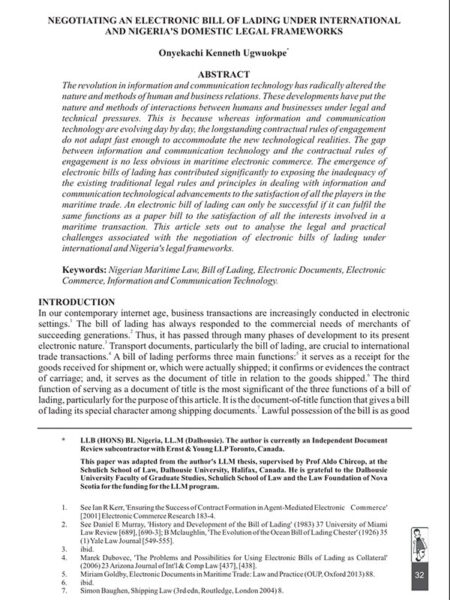
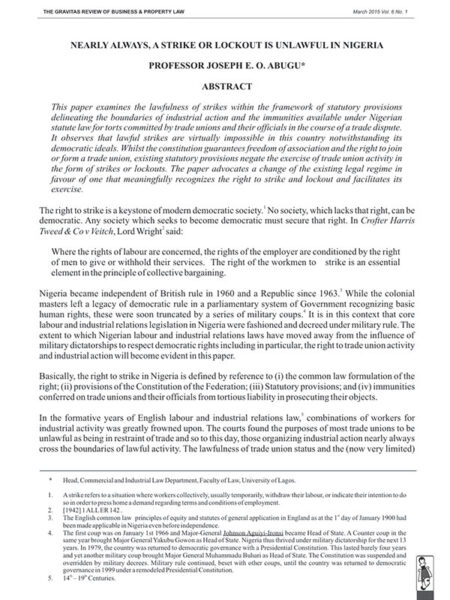
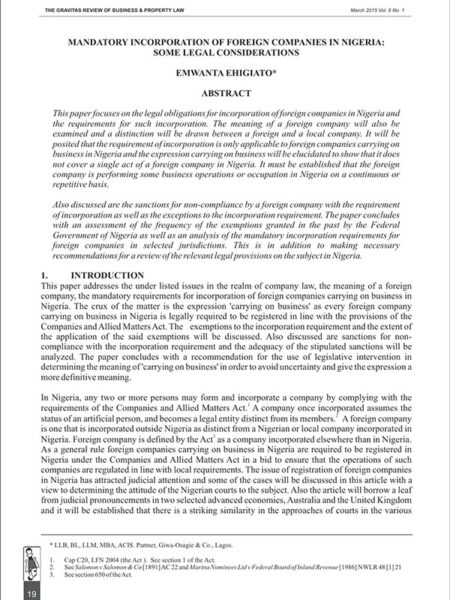


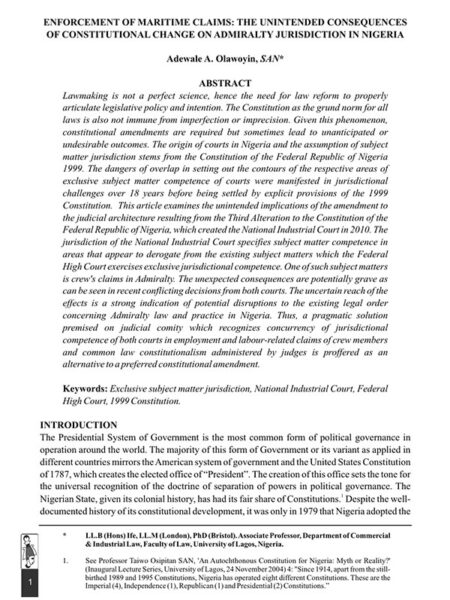
Reviews
There are no reviews yet.